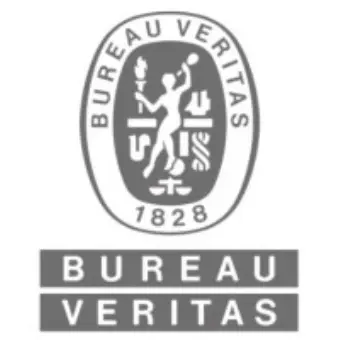Principal Fire Protection and Wildfire Compliance Engineer

Bureau Veritas Group
-
Principal Fire Protection and Wildfire Compliance Engineer
Overview:
The Principal Fire Protection and Wildfire Compliance Engineer is a highly specialized senior-level technical expert responsible for managing fire and life safety across the utility's infrastructure, with a specific focus on complex technical occupancies, hazardous environments, and comprehensive regulatory compliance. This role combines advanced fire protection engineering with a hands-on tactical understanding of emergency operations and a deep knowledge of specialized fire codes. The engineer will provide authoritative oversight of fire protection plan review and field inspections, integrating technical requirements into the utility's broader wildfire and property loss control strategies.
Key responsibilities:
Regulatory plan review and enforcement:
Lead the fire protection plan review process for all utility facilities and construction projects, including those with special technical occupancies (e.g., generation plants, advanced control centers) and hazardous environments (e.g., fuel storage, chemical treatment facilities).
Serve as the primary liaison with fire marshals, regulatory bodies, and other authorities having jurisdiction (AHJ) during plan reviews, inspections, and enforcement actions. Develop and maintain a robust system for tracking regulatory compliance, corrective actions, and documentation across all fire protection activities.
Hazardous environment and special occupancy loss control:
Conduct advanced risk assessments and loss control evaluations for special technical occupancies and areas with hazardous materials, identifying potential fire ignition sources, propagation risks, and mitigation measures.
Specify and review the design of specialized fire suppression systems, detection systems, and fire-resistant construction for these high-risk areas, ensuring compliance with relevant NFPA standards (e.g., NFPA 30, NFPA 850) and OSHA requirements. Evaluate potential environmental impacts and associated regulatory reporting requirements related to fire and hazardous materials incidents.
-
Utility and wildfire fire operations:
Provide expert guidance and operational readiness evaluation, drawing on fire operations experience to inform the utility's wildfire response plans and procedures. Collaborate with internal and external fire agencies on pre-incident planning, tactical response strategies, and incident command system integration. Conduct post-incident analysis for fires impacting special occupancies or hazardous environments, using findings to drive improvements in engineering, procedures, and training.
Program evaluation and risk modeling:
Assess the effectiveness of the utility's Fire Prevention Plan (FPP) and Wildfire Mitigation Plan (WMP), particularly as they apply to hazardous environments and special occupancies. Manage and evaluate the use of wildfire risk modeling software and operational tools, incorporating specialized data related to hazardous materials and facility vulnerability.
Cross-functional and executive reporting:
Act as a technical subject matter expert for executive leadership and legal counsel, providing clear and concise report on fire protection compliance, loss control, and risk exposure. Lead cross-functional teams involving engineering, operations, safety, and environmental departments to ensure seamless integration of fire and life safety requirements.
Qualifications:
Experience:
10+ years of progressive experience in fire protection engineering, including extensive experience with regulatory plan review, field inspections, and loss control.
Proven experience conducting fire and hazardous materials risk assessments in industrial or utility settings, particularly involving special technical occupancies and high-hazard environments.
Demonstrated experience in fire operations, with a deep understanding of incident command, emergency response, and firefighting tactics.
Expert-level knowledge of NFPA codes and standards applicable to utilities and hazardous environments (e.g., NFPA 30, 70, 850, 101).
-
Education and certification:
Bachelor’s degree in Fire Protection Engineering, Electrical Engineering, or a related field. Master’s degree preferred.
Professional Engineer (PE) license is required.
Certified Fire Protection Specialist (CFPS) is highly desirable.
Skills:
Expert knowledge of fire science, hazardous materials behavior, electrical systems, and relevant regulatory codes (e.g., NFPA, OSHA, EPA). Advanced proficiency in plan review processes, inspection protocols, and fire investigation techniques. Exceptional written and verbal communication skills, with the ability to convey complex technical and regulatory information to diverse audiences, from field crews to executive leaders. Ability to balance technical requirements, regulatory mandates, and operational realities in a high-risk environment.
Working conditions:
Regular travel for inspections approximately 25% of the time. The role involves a mix of office-based work and significant fieldwork in diverse and potentially hazardous environments. The position demands flexibility and may require irregular hours during fire events, emergencies, and regulatory deadlines.